Eco-Friendly Barbecues
Men’s Vibrancy at Every Age
World’s Greatest Father
Fun Ways to Be the Best Dad
Holistic Approaches to Eye Health



Eco-Friendly Barbecues
Men’s Vibrancy at Every Age
World’s Greatest Father
Fun Ways to Be the Best Dad
Holistic Approaches to Eye Health






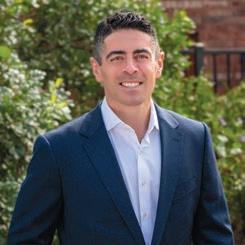
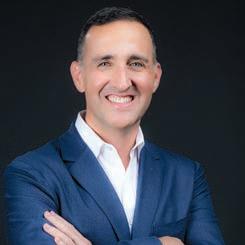
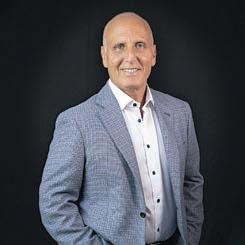
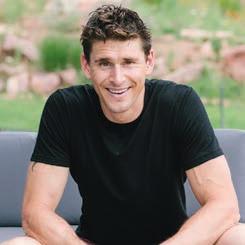
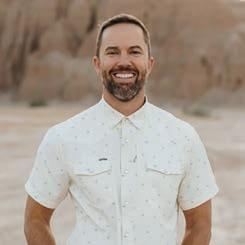
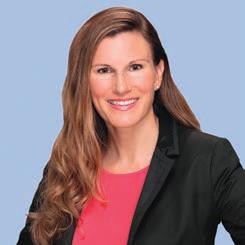







Find additional articles online at NaturalAZ.com. Go to the homepage and explore local businesses and articles exclusively from Natural Awakenings.


Basking in the Soul of Summer
health briefs
Rise in Children With Autism

New Insights on Water Consumption Requirements
Low Vitamin D Linked to Risk of Death


global briefs

Dramatic Drop in Arctic Ice Levels
Artificial Intelligence That Can See With the Mind’s Eye

Natural Awakenings is a network of natural lifestyle magazine publishers empowering local communities with knowledge, resources and connections to lead healthier lives on a healthy planet.


16
14 ARE YOU NEURODIVERGENT? Take This Short Quiz to Find Out
16 WHAT EVERY MAN WANTS
Sexual Vitality at Every Age
20 DR. MARK HYMAN on Living Healthy to 100 and Beyond
22 CONVERTING FOOD TO ENERGY
Learning How Metabolism Works
26 STRAIGHTEN UP AND FEEL RIGHT
Tips for Good Posture and a Healthy Spine
28 KEEPING EYES SHARP

A Holistic Approach to Vision Health
30 LEAPS AND BOUNDS
Keeping Canine Jumpers Injury-Free
32 SOCIALLY CONSCIOUS INVESTING
To advertise with Natural Awakenings or request a media kit, please email PhoenixAds@NaturalAZ.com
Deadline for ads: the 10th of the month.
EDITORIAL SUBMISSIONS
Go to NaturalAZ.com/pages/contact to inquire about editorial opportunities. Deadline for editorial: the 10th of the month.
Calendar events are online only, and can be submitted at NaturalAZ.com/calendar
NATIONAL MARKETS
Advertise your products or services in multiple markets!
Natural Awakenings Publishing Corp. is a growing franchised family of locally owned magazines serving communities since 1994. To place your ad in other markets call 239-206-2000. For franchising opportunities call 239-206-2000 or email NaturalAwakenings@KnoWEwell.com.
How to Choose Sustainable Stocks and Mutual Funds
34 CONSCIOUS FATHERHOOD Building a Better Family

PUBLISHER
Tracy Patterson, BSc, MES DESIGN & PRODUCTION
Vegetorium, LLC
COPY EDITOR
Sara Gurgen
DIGITAL PLATFORMS
Hass Solutions
Locable
Natural Awakenings – Phoenix 17470 N Pacesetter Way Scottsdale, AZ 85255 Tracy@NaturalAZ.com NaturalAZ.com

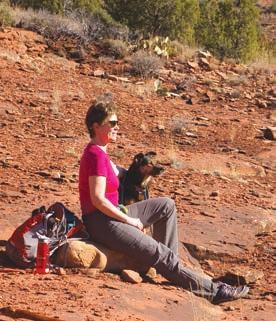
CEO Kimberly B. Whittle

National Editor Sandra Yeyati
Editor Brooke Goode
Copy Editor/Proofreader Melanie Rankin
Design & Production Gabrielle W-Perillo
National Advertising

Lisa Doyle-Mitchell
Lately, I’ve been watching videos by functional medicine experts, including one by bestselling author, speaker, educator and advocate in the field of functional medicine Dr. Mark Hyman, who is featured in this month’s Wise Words section on page 20.
I am admittedly at the beginning of my knowledgeseeking quest into the world of functional medicine, but it seems as if the longevity strategies involve some basic concepts, some of which I do already, like eating organic foods and very little sugar and starch, and some that I need to work on, like my sleep habits.
I love the simplicity of these strategies and how we can implement them to help our bodies stay strong and prevent disease. It seems like a splendid alternative to taking the donothing approach that lives in the reactive world of treating disease—not to mention the side effects that come along with these treatments. It’s a slippery slope downhill once you’re on that path.
Another great part of this emerging science is that we have some control over our genetics, even if we are predisposed to some illness. We can make a difference in our own lives, and it’s bound to lessen some of the fears we face if, for example, cancer runs in our family. It doesn’t mean we won’t get cancer, but it does give us tools and hope we can at least minimize the risk in science-backed, simple ways.
It may seem a little overwhelming, especially when we have a lot of habits to change to get on the right track, but once the habits are in place, it really appears to be a straightforward way of living, harkening back to the days when human beings engaged in more physical work and there was no junk food…
I have a ways to go before I have a better handle on how to proceed, but I like what my research has yielded so far—no fads, just getting back to basics, with some strategic elements, such as specific foods to combat specific things. The only habit I’ve come across that I may end up digging my heels in on is the ice bath Dr. Hyman suggests in the Wise Words interview. But once we hit 100-plus degrees this summer, I may be rethinking my hesitancy on that one!
© 2023 by Natural Awakenings. All rights reserved. Although some parts of this publication may be reproduced and reprinted, we require that prior permission be obtained in writing.
Natural Awakenings is a free publication distributed locally and is supported by our advertisers. Please contact us to find a location near you.
We do not necessarily endorse the views expressed in the articles and advertisements, nor are we responsible for the products and services advertised. Check with a healthcare professional regarding the appropriate use of any treatment.
Please note that all deadlines (advertising and editorial) are the 10th of the month prior to the edition being published. For example, June 10 is the deadline for all July edition submissions.



A 2022 research study published in The Journal of Nutrition suggests that herbs and spices may be unsung heroes in the quest for gut health. The three-period, randomized, controlled-feeding study involved 54 obese or overweight adults aged 30 to 75 with at least one other risk factor for cardiovascular disease, such as elevated glucose or triglycerides.
Participants consumed the same average American diet for four weeks, along with one of three daily doses of spices and herbs—0.5 grams, 3.3 grams or 6.6 grams—which included cinnamon, ginger, cumin, turmeric, rosemary, oregano, basil and thyme. Fecal samples were collected at the start of the study and the end of each diet period.
Researchers determined that consuming 3.3 or 6.6 grams of herbs and spices per day increased levels of the Ruminococcaceae bacteria, a major player in the maintenance of gut health. The highest levels of this beneficial bacteria were observed among those that consumed the highest levels of herbs and spices. The scientists recommend further investigation to identify the metabolic implications of their findings.
Parents are busy people, often juggling multiple commitments. Add a toddler meltdown to the mix, and it is easy to understand why parents may reach for a tablet, smartphone or other screen to calm and occupy the child. A new study published in JAMA Pediatrics found that children pay a price for this strategy.
Researchers at the University of Michigan concluded that the frequent use of mobile devices to calm young children may displace their opportunities for learning emotionregulation strategies over time. The cohort study involved a sample of English-speaking parents of typically developing children aged 3 to 5. The scientists gathered baseline data at the start of the study, as well as follow-up evidence after three months and six months.

The participating parents used a five-point scale to report how often they used mobile devices to calm upset children. At each follow-up, the child’s executive functioning and emotional reactivity were assessed. The study found that the frequent use of mobile devices for calming young children was associated with increased emotional dysregulation, especially in boys, and included rapid shifts between sadness and excitement, greater impulsivity and sudden mood changes.
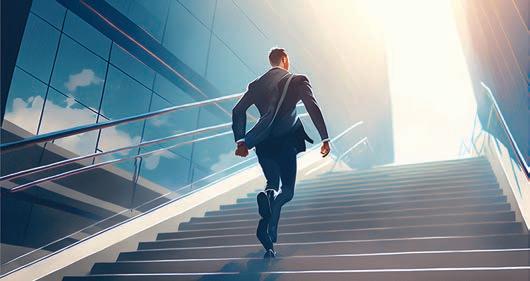
A new study in the journal Nature Medicine suggests that short bursts of intense movement are associated with a lower risk of premature death. The UK researchers analyzed data from about 25,000 non-exercisers with an average age of 62 that wore movement tracking devices on their wrists.
Vigorous intermittent lifestyle physical activity (VILPA) refers to short, sporadic bursts of exertion done as part of daily living, such as walking very fast while commuting to work or climbing stairs. The scientists found that compared to participants that engaged in no VILPA, those that did just one to two minutes of VILPA three to four times daily exhibited a 38 to 40 percent lower risk of death over the course of seven years. They also noted that just a few minutes of VILPA throughout the day reduced cardiovascular disease-related mortality by up to 49 percent.
Similar results were obtained when they analyzed vigorous physical activity in roughly 62,000 participants that exercised regularly. VILPA in non-exercisers appears to elicit similar effects to vigorous physical activity in exercisers, suggesting that VILPA may be a suitable physical activity target, especially in people not able or willing to exercise on a regular basis.
Brazilian researchers have discovered rocks formed from plastic debris in the permanently preserved area of Trindade Island, approximately 680 miles off the coast of Brazil. The island is a remote refuge for green turtles, which come by the thousands every year to lay their eggs. The only human inhabitants of the island are members of the Brazilian navy.
The team of researchers ran chemical tests on the rocks, called plasticglomerates, and determined that they were formed when fishing nets were dragged by the current and accumulated on the beach. It is believed that the nets melt when the temperature rises and they become embedded with the sedimentary granules and other debris on the beach.


A group of leading technology executives, researchers, academics and others from around the world have signed an open letter prepared by the Future of Life Institute calling for a six-month pause on large, human-competitive artificial intelligence (AI) experiments. As of March 31, more than 1,800 CEOs and 1,500 professors had signed the letter.

“AI labs are locked in an out-of-control race to develop and deploy ever more powerful digital minds that no one— not even their creators—can understand, predict or reliably control,” the letter contends. The authors are concerned that “AI systems are now becoming human-competitive at general tasks.”
While AI systems grow more powerful, there is no natural law or barrier to technical progress. The letter’s authors and signers are asking all AI labs to pause the training of powerful AI systems so that safety protocols can be implemented to ensure the effects of these systems will be positive and the risks manageable. According to the letter, “If such a pause cannot be enacted quickly, governments should step in and institute a moratorium.”
Individuals can view and sign the letter at Tinyurl.com/ AImoratorium.
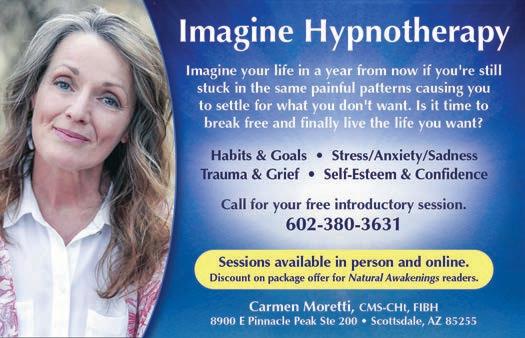
jatupronAdobeStock.com
Most mesh tea bags are made of 20 to 30 percent plastic, which can release microplastics and nanoplastics, causing harmful effects for both human health and the environment. In a study published in the journal Environmental Science & Technology, researchers found that one standard tea bag made with plastic released 11.6 billion microplastics and 3.1 billion nanoplastics into a cup of tea. The particles in the tea matched the nylon and polyethylene terephthalate in the original tea bag.
Safer alternatives include steeping loose teas with a stainless steel or silicone tea strainer, or purchasing tea from brands that offer plastic-free teabags. Organic teas may still have plastic in the tea bag, as the packaging is not overseen by organic-certifying organizations.
Asa professional psychic, I’ve seen the awakening of the masses. People don't look at us with disdain or fear anymore. Now there is curiosity about what we do.
People need a deeper purpose. Most know there's more to them than they imagined. It's a challenge to find this part of ourselves. People are seeing how an intuitive helps bring this to their lives.
As an intuitive, I help people hear their inner voice and team of helpers. As an angel communicator, I work with your guardian angels and higher self for answers and guidance.


As a medium, I help clients find peace regarding their loved ones. They receive healing, say what was left unsaid, and resolve unanswered questions.
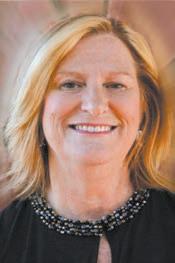
It’s not uncommon for leaders and high-profile performers to use an intuitive. My high-profile clients are open to the value provided in their own personal and professional lives.

As a cautionary note, when people are vulnerable, some will take advantage.
Here are Some Safety Tips:
Fear-based interactions – If someone fills you with fear or implies fearful scenarios, beware.

Big ego – Some egos go unchecked. Once this happens, it's dangerous. It becomes more about them than you.
Overcharging – While a professional earns their living this way, some charge excessive amounts and scare clients into paying. If a person is pressuring you to pay an excessive amount, beware.
Taerie Gillan has been a professional psychic/ medium for 40 years. Working with people from all walks of life, she’s helped thousands worldwide. Eighteen years ago, Gillan added intuitive coaching and consulting to her offerings. Combining a lifelong mystical path with personal development, business strategies, marketing, health, trauma/crisis release and healing, and communication skills, she now works with leaders to help them live a balanced life and achieve their dreams. Gillan
be reached at 928-707-2335 or
Feeling stuck and not knowing how to get out of that is one of the worst feelings and can cause us to feel depressed and overwhelmed. Sometimes life can feel like the movie Groundhog Day, where we do and feel the same things over and over again. It seems nonsensical that we do these things, and we end up shaming and belittling ourselves because we think we should be able to do better; be better. Yet nothing seems to change.
What if you understood that there are patterns running beneath your conscious awareness that are getting you these kinds of results, which cause so much frustration?
At Imagine Hypnotherapy, you'll learn to break free of the patterns that keep you stuck and cause you to settle for a life you don't want. You're treated like an individual and are active in creating a plan that's specific to you. There's no "canned" therapy at Imagine Hypnotherapy. The plan includes education, goal setting, deep listening, coaching, learning new tools, and of course, hypnosis to uncover the hidden patterns and upgrade them to new, empowering patterns that enable you to have a life you are proud of and that you love.

Whether the issue that brings you to Imagine Hypnotherapy is past trauma, self-esteem, stress, sadness or what most think of hypnotherapy for: weight loss or smoking cessation, you will be listened to, cared about and supported on your journey to a better life.
Carmen Moretti has invested the past 13 years in mastering the tools needed to free people from sometimes invisible cycles of sadness, anxiety and overwhelm. She has learned just how close we are (and how simple it is) to freeing our minds from the cycles that keep us stuck. Imagine Hypnotherapy is located at 8900 E. Pinnacle Peak, Ste. 200, in Scottsdale. For more information or to make an appointment, call 602-380-3631. See ad, page 11.


We offer medical assistance for the prevention and treatment of COVID and long COVID.

Our team of experienced healthcare professionals uses FLCCC protocols and natural health solutions to provide the best possible care for you.
Long COVID’s common symptoms:
• Brain fog
• Fatigue
• Shortness of breath
• Chronic cough
• Digestive issues
Many of the people we work with have been cycled from doctor to doctor, specialist to specialist , and walked away without helpful answers. We know your symptoms are “not all in your head.” You need to see progress.
We take the time to understand your issues and develop treatment plans tailored to your unique needs.
We reply to inquiries within hours. We are here to help!
One in 68 children are diagnosed with a neurodivergent condition. Males are four times more likely than females to be diagnosed with a neurodivergent condition.
Neurodiversity is a way to describe how our brains are wired differently, and how certain individuals interpret the world and their surroundings differently. Take this short 20-question quiz:
1. Have you experienced being bullied or ostracized from the group at school or work for being “different” from the rest?
2. Do you interpret language literally and have trouble understanding sarcasm?
3. Do you constantly find yourself in situations where everyone seems to get the joke but you?
4. Do you struggle with “rule breaking” behavior and find it impossible to tell even white lies?
5. Do you have difficulty going with the flow when planned events suddenly change?
6. Do you tend to freak out and have intense meltdowns, to the point where you completely lose your composure?
7. Do you find small talk near impossible, struggle and become awkward in social situations?
8. Are you known for being the overtly intense expert in your field?
9. Do you purposely avoid unfamiliar situations?
10. Do people habitually find your direct way of communicating rude or insulting?
11. Is your “routine” important to you, and do you tend to become agitated if your daily routine is interrupted?
12. Do you find yourself with only one or two close friends and almost no acquaintances?
13. Do you find yourself constantly preparing and rehearsing before interacting with your peers?
14. Are you a fidgeter—do you need to move your hands or your leg constantly to calm yourself?
15. Must you eat the same meals all the time?
16. Do you regularly experience sensory overload where loud noises, and strong smells and flashing lights completely overwhelm you?
17. Does prolonged direct eye contact bother you?
18. Do you prefer texting and email to faceto-face communication?
19. Do you avoid touching or being touched, such as a hug?
20. Is sleeping at night a constant challenge?
Did you answer yes to many or all of these questions? If so, you may want to keep reading and find out more about neurodivergent behaviors, but first the disclaimer: Both the quiz and this article are informational and intended to increase your awareness of neurodivergent behavior and not intended to diagnose or treat a medical condition. If you think you may have a neurodivergent condition, please consult a medical professional.
There are three important terms to understand when it comes to neurodivergent behavior: neurodiversity, neurotypical and neurodivergent.
Neurodiversity is the term we use to explain that there are many ways to understand and engage with the world. No two people understand their environment in exactly the same way. An easy example might be that an individual who grew up in

Alaska will have a much different understanding of what it means to be cold than someone from Phoenix. Engaging with society is much more complex, as there are a lot of social do’s and do not’s, and understanding them requires picking up on speech patterns, social cues, voice inflexions, bodily postures, facial expressions and hand gestures, just to name a few.
Neurotypical behavior is the mode in which most people understand the world around them. It is helpful to use the term “herd behavior” when describing neurotypical behavior because it helps us to understand what it means to coexist within societal norms. An example of neurotypical behavior is the ability to understand and engage in what is known as “small talk.”
Neurodivergent behavior refers to the recent nonmedical term coined in 1997 by Judy Singer. The term neurodivergent is used to explain behavioral traits commonly found in people diagnosed with autism spectrum disorder. Neurodivergent behavior is most easily understood by its polarity to neurotypical behavior, and refers to behavior that is not normal or typical. An example of neurodivergent behavior is stimming. Stimming in the autistic community refers to repetitive behavior, such a hand waiving, excessive tapping, or complex repetitive body movements.
Neurodivergent behavior is found in more than 300 diagnoses, to include:
• ASD (autism spectrum disorder), formerly known as autism or Asperger’s syndrome.
• ADD (attention-deficit disorder).
• ADHD (attention-deficit/hyperactivity disorder).
• Dyscalculia – difficulty with math.
• Dysgraphia – difficulty with writing.

• Dyslexia – difficulty with reading.
• Dyspraxia – difficulty with coordination.
• Bipolar disorder, also known as manic depression.
• OCD (obsessive-compulsive disorder).
• Sensory processing disorders and social anxiety.
Neurodivergent behavior is most commonly associated with ASD or Asperger’s. As of 2013, we no longer use the medical term Asperger’s, which is defined as highfunctioning autism. ASD is a neurological and developmental disorder that affects how people interact with others, communicate, learn and behave.
The emerging terms neurodivergent and neurotypical behavior associated with neu rodiversity are gaining importance because they create new awareness and under standing. A diagnosis of being different or divergent is not necessarily a deficit, but can also be recognized for beneficial traits.
Here are 15 famous neurodivergent men who have helped shape our world: Elon Musk, Bill Gates, Thomas Edison, Alexan der Graham Bell, Carl Jung, Nikola Tesla, Leonardo da Vinci, Vincent van Gogh, Al bert Einstein, Charles Darwin, Henry Ford,
Sir Isaac Newton, Ludwig van Beethoven, Wolfgang Amadeus Mozart, and Bob Dylan. Neurodivergent behavior has both strengths and weaknesses. Here are five strengths and five weaknesses of neurodivergent behavior:
Strengths:
1. Detail oriented, and has an intense ability for focus and determination.
2. Ability to absorb and retain facts.
3. Integrity, honesty and loyalty.
4. Creative, imaginative and thinks innovatively.
5. Affinity for excellence in music, art, math, technology and science.
Weaknesses:
1. Poor social skills; not team players.
2. Difficulty with multitasking.
3. Rigid routines and resistance to change.
4. Sensory processing (overwhelm) difficulties.
5. Difficulty developing and maintaining relationships.
Dr. M. Fontes, Clinic Director at Natural Medicine & Detox. For more information, call 602-307-0888 or visit NaturalMedicineDetox.com. See ad, page 33.
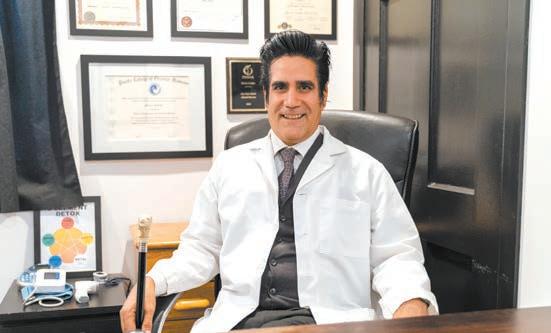
Advertorial
Close your eyes. Centered in this sacred space allow the soothing music and soft narrowband UV-B light to flow over and around you. Surrender to the experience and simply BE for a 20-minute session.
The consciousness raising experience of Blu Room technology grants individuals what they need to bring peace and calm into their lives. Recognize the subtle changes to your body and mind. Feel calmer, restored, and perhaps rejuvenated after a session.



 by Carrie Jackson
by Carrie Jackson
For men, sexual health is a key, but often overlooked, component of overall wellness. A man in optimal physical shape is able to fully enjoy and participate in sexual activity with an active libido and the ability to sustain an erection. Poor sexual health can lead to depression, prostate cancer, erectile dysfunction and other troublesome symptoms and conditions.
Fortunately, male sexual function is better understood medically than ever before, and it is more common for men to talk with their doctors and other professionals about topics that seemed taboo not that long ago. New technology is making it easier to diagnose and treat common problems, and it is widely understood that physical, neurological, hormonal, interpersonal and mental factors all play into sexual wellness. By taking a proactive and holistic approach to their overall wellness, men can enjoy a robust sex drive and performance long into their later years.


Eric Plasker, a licensed chiropractor and author of The 100 Year Lifestyle, attests that sexual health does not have to decline with age, and men can proactively counter that myth with mindful lifestyle choices. “If you’re aging in a healthy manner, your libido does not have to decline. By taking part in activities you find fulfilling and nurturing your mind, body and spirit, your sexual energy can stay naturally high,” Plasker explains.
He recommends that people take an energy inventory to assess which activities and lifestyle choices are serving them. “Make a list of all the things you do that help you gain energy and those that drain your energy. This includes the food you eat, hobbies, habits, even people you spend time with. Then see how you can turn the drainers into gainers. For example, if driving in traffic makes you angry, put on relaxing music and do deep breathing exercises to shift yourself into a more positive state. These shifts
Our summer shop hours will be the same as our regular hours.
Tuesday-Friday 11am to 5 pm Saturday 10 am to 3 pm
If you are out of town, traveling or its just too darn hot to get to the shop but need something, please feel free to order online: www.SWHerb.com/shop
HERBS coupon code gets you free shipping with $45+ purchase. Phone orders available, too! Our next Herbal Certi cation Classes: 2 Weekends, June 3, 4, 10 and 11 5-week starts October 14th, reserve your seat today!
Our online store is AWESOME: www.SWHerb.com/Shop

will make you more energetic, stronger, more passionate and present with your partners, and you’ll have more energy to be sexual and loving,” he says.
Sexual health depends on a healthy nervous system, and maintaining a balanced flow of hormones and neurotransmitters is essential for proper neurological function. According to Plasker, disease, inactivity and inflammation—especially in the lumbar spine and sacroiliac joints—can cause a communication breakdown.
“Blockages in the nervous system flow can cause disruption to the sexual organs and lead to a compromised libido,” he explains. “Chiropractic adjustments, combined with regular exercise, will help raise cortisol, reduce stress and open up these pathways in the body. I recommend that patients find an activity they enjoy, such as swimming or tennis, so it becomes an enjoyable part of their routine,” Plasker says.
According to Tracy Gapin, a board-certified urologist in Sarasota, Florida, strong sexual health and desire is a window to overall health. He helps patients reach their sexual potential with a combination of sciencebased medicine and holistic practices. “The body is one connected system, and great sexual function is an indication that your body is optimized,” he advises.
While testosterone is widely known to affect sex drive, Gapin looks at the interplay of a variety of other hormones, too. Hormone optimization, testosterone therapy and peptide therapy, which utilizes the body’s own amino acids to increase hormone levels, are non-invasive outpatient tools that men can use to analyze and optimize their sex drive.

“The body produces over 50 hormones, which all contribute to regulating biological processes,” he explains. “Low testosterone can lead to weight gain, anxiety, erectile dysfunction and other serious health issues, including diabetes, obesity, metabolic syndrome, osteoporosis and cardiovascular disease. Men want to optimize their thyroid and DHT [dihydrotestosterone] levels, both of which can lower the sex drive when compromised. Vitamin D helps regulate the gut, which controls the health
According to the American Cancer Society, one in eight men in the United States will be diagnosed with prostate cancer during their lifetime. It is, in fact, the most common cancer among American men. Prostate cancer is more likely to develop in older men and in non-Hispanic Black men. About six cases in 10 are diagnosed in men that are 65 or older, and it is rare in men under 40.
Gapin asserts that preventative and proactive lifestyle choices can drastically reduce the risk. “New, non-invasive MRI treatments are making it easier to detect and diagnose cancer earlier by highlighting suspicious areas in the prostate and targeting them for biopsy,” he explains, adding that men diagnosed with prostate cancer have a number of treatment options.
of the entire body. Neurotransmitters, which help release feel-good endorphins such as serotonin and dopamine, are made in the gut and can affect depression, anxiety and other issues that lower libido.” Gapin stresses that it is more important to think about “optimal” levels of hormones instead of “normal” ranges and encourages patients to move beyond the basic blood tests to assess their health. “Besides sex drive, testosterone also affects cardiovascular health, muscle and bone strength, fat mass, cognitive health and even longevity, so it’s important to be aware of your own levels,” he says. “Every man is different, and the range in which you feel and perform your best is what’s right for you. With medical advice constantly changing, it can be a challenge to keep track of all the recommended tests. DNA testing, epigenetic age assessments, advanced lipid panels, inflammation markers and thyroid testing can all give insight to how the body is functioning as a whole.”
“Traditionally, patients would have the prostate removed and undergo radiation. However, these procedures come with a list of disturbing side effects. A newer, FDAapproved treatment called high-intensity focused ultrasound (HIFU) is a noninvasive procedure that eradicates prostate cancer,” Gapin notes. “HIFU is an outpatient procedure with excellent oncologic outcomes, minimal side effects and quick recovery times.”
As an osteopathic doctor and integrative medicine practitioner at the Masley Optimal Health Center, in St. Petersburg, Florida, Tarin Forbes looks at the root causes of disease and dysfunction. She, too, considers sexual health an integral component of overall wellness and gives patients the tools to achieve their desired sexual potential. “While every person is different, optimal sexual health usually means that men wake up with a morning erection, desire intercourse on a daily basis and can reach an erection without stimulation or genital contact,” she remarks.
Making mindful choices that prioritize nutrition will naturally improve sexual health. “Nourish yourself with a whole food, plant-based diet rich in nutrients, including nitrate-rich foods and foods
rich in vitamin C and folate, which boost nitric oxide, the main compound that increases blood flow,” Forbes says. “Beans, citrus fruits, beets, celery, cruciferous vegetables and leafy greens boost nitric oxide or its bioavailability to improve blood flow. While getting nutrition from food is ideal, supplements such as zinc, magnesium, vitamin D and boron can help regulate sex hormones. Avoid certain medications, including over-the-counter medicine such as NSAIDs [non-steroidal anti-inflammatory drugs] like Advil, acid blockers and even mouthwash, which blocks nitric oxide.”
Forbes also recommends engaging in high-intensity exercises and weight resistance that help increase testosterone and blood flow to the penis. Reducing environmental toxins is another important step, she notes, as plastics, pesticides and other chemicals can rob men of their testosterone, which not only affects blood flow but also libido.

Forbes cautions that while erectile dysfunction drugs work in the short-term, they can produce unwanted consequences. “Viagra does work to help men achieve an erection by stimulating blood flow to the penis. However, it can cause troublesome side effects including headaches, vision problems and nasal congestion. Non-pharmaceutical alternatives can provide good results without undesirable repercussions. Low-intensity shock wave therapy, a non-invasive outpatient procedure, uses targeted sound waves to improve blood flow to the penis and can be done once or in a series of treatments. Platelet-rich plasma injections use the patient’s
own plasma to stimulate new tissue growth in the penis, which can lead to larger and more frequent erections,” she explains.
Forbes says that by having an open dialogue with their medical professionals and exploring holistic treatments, men at any age can feel sexier and more energetic than ever. “Talk about your concerns with your doctor, who may offer referrals to other specialists until the issue is solved. A physical therapist can teach men to strengthen their pelvic floor with Kegels and other exercises. Sexual therapists help men work through mental and psychological issues, which can be as debilitating as physical ones. A psychologist can offer tools for managing depression and anxiety, both of which can contribute to sexual dysfunction, including low libido and performance anxiety,” she says, noting that if a man does not feel comfortable talking with their doctor, it may be time to find a new one.
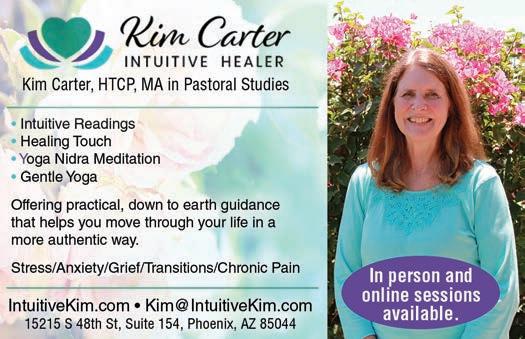
Many factors contribute to sexual health, and every man’s needs and desires are different. By addressing physical, hormonal, neurological and mental wellness with a combination of conventional and holistic treatments, men can experience sexual performance and enjoyment at any age. “There’s more awareness than ever before about sexual health, and men don’t have to compromise this integral part of their overall wellness,” says Forbes.

 Carrie Jackson is a Chicago-based freelance writer and frequent contributor to Natural Awakenings magazine. Connect at Carrie JacksonWrites.com.
Carrie Jackson is a Chicago-based freelance writer and frequent contributor to Natural Awakenings magazine. Connect at Carrie JacksonWrites.com.
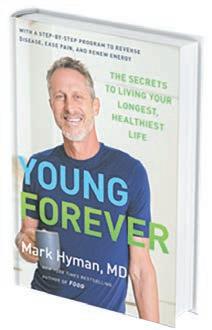
Mark Hyman is a practicing family physician and an internationally recognized leader, bestselling author, speaker, educator and advocate in the field of functional medicine. He is the founder and director of The UltraWellness Center, founder and senior advisor for the Cleveland Clinic Center for Functional Medicine and board president for clinical affairs for The Institute for Functional Medicine. He is also the founder and chairman of the Food Fix Campaign, dedicated to transforming our food and agriculture system through policy change, and hosts The Doctor’s Farmacy, a podcast with more than 150 million downloads. Hyman is a regular contributor to CBS This Morning, Today, Good Morning America, The View, Fox and CNN. His latest book, Young Forever: The Secrets to Living Your Longest, Healthiest Life, champions the latest science on healthy aging.
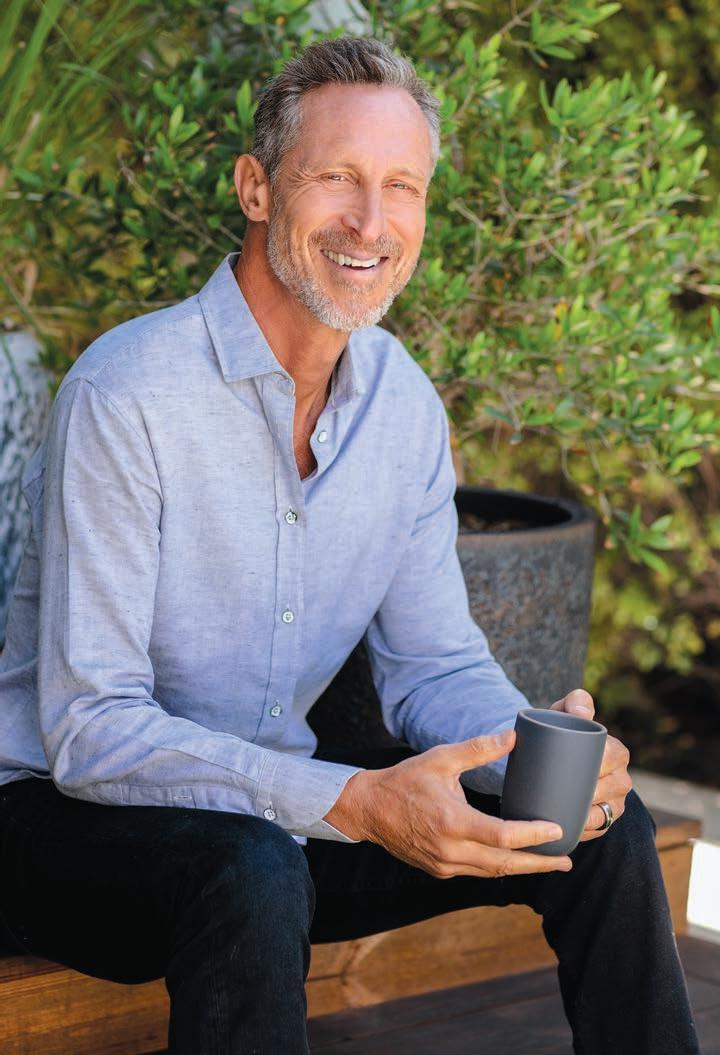
is the emerging science on longevity changing the way we view aging?
Many things we’ve come to accept as a normal part of getting older are not. Decrepitude, frailty, disease, diabetes, cancers, dementia—these are optional. We can’t change chronological aging, but we can slow and reverse biological aging by influencing the hallmarks of aging, which are these underlying processes that go awry as we get older.
In my book I wrote about 10 hallmarks of aging, which are all part of one ecosystem of problems. They’re not separate; they influence each other; and they’re dynamic. It’s things like inflammation, mitochondrial dysfunction, DNA damage, zombie cells, shortened telomeres, microbiome changes and epigenetic changes, which are changes in how our genes are expressed. They’re all important, but the most important hallmark of aging is called deregulated nutrient sensing, which means how our body interacts with food and how that influences us for good or bad. Problems with nutrient sensing affect almost all the other hallmarks and make them worse.
We have built-in longevity pathways and over 3,000 survival genes, and we can activate this innate healing intelligence at any time. A major way to influence four of these pathways is through food. I call them longevity switches, which we need to learn how to regulate to make our health span equal our lifespan.
The first one is activated by too much sugar and starch, which drives too much insulin signaling, causing diabetes, prediabetes, cancer, dementia, heart disease or obesity. When insulin is over-expressed, it causes weight gain, fat storage, inflammation and lots of other problems.
The next one is mTOR [mammalian target of rapamycin], a pathway that makes new proteins and builds muscle, but gets overstimulated because of our constant
eating and snacking and eating before bed. mTOR needs to be inhibited periodically by intermittent fasting or time-restricted eating to allow autophagy to happen, which is like a recycling and repair crew that comes in at night and cleans up all the damaged proteins.
The other two pathways, sirtuins and AMPK [adenosine monophosphateactivated protein kinase], sense a lack of nutrients and switch on survival pathways. If we’re constantly eating sugar and starch, then AMPK and sirtuins are overstimulated, and they’re not given a break to activate these pathways.
If it were a pill, exercise would basically fix everything. It’s probably the most potent intervention there is, other than calorie restriction or fasting, and it works on many of the longevity pathways. The most important type of exercise is resistance training as you get older, because you need to build muscle. Without muscle, you become frail and dysfunctional.
Exercise influences our DNA stability; lengthens telomeres; preserves the genome; affects the proteins; regulates mTOR, AMPK and sirtuins; preserves mitochondrial function; prevents zombie cells; helps with stem cells; reduces inflammation, cardiovascular risk and diabetes; and it’s also really important for becoming insulin sensitive.
Hormesis is the idea that what doesn’t kill you makes you stronger. The concept is not new. We know that exercise, for example, is a stress on the body, but it actually makes you rebound stronger. When you lift weights or you run, it’s a stress, but you’re getting thinner and stronger. There are other forms of hormesis that activate longevity pathways. Hot sauna therapy reduces your risk of cardiovascular mortality by 50 percent. Cold immersion therapy has many benefits, like increasing dopamine, activating brown fat and regulating metabolism. Fasting is a kind of hormesis, and longer fasts—for a day, three days, a week—are very powerful.
The science is pretty clear that the body has innate systems that can be regulated by our thoughts. We now understand the mechanisms by which our social relationships and connections can influence our gene expression and everything from inflammation to insulin resistance to everything else, so building connection with others and building relationships and community is very important.
A lot of this is just habit development and routine. This morning I worked out with my resistance bands for half an hour, took a steam shower and an ice bath, then had a longevity shake with goat whey, creatine, urolithin A and adaptogenic mushrooms. Then I took a walking meeting for an hourand-a-half outside while I was on a call. Tonight, I plan to spend time with friends. I eat pretty simply most of the time. Last night, I had lamb chops, sweet potatoes, shiitake mushrooms, artichokes (which are a great prebiotic food) and some broccoli with lemon, garlic and olive oil. I take my supplements as well. So it’s very simple, very easy.
Metabolism is the process by which the foods and drinks we consume are converted into energy. We may not notice the cellular mechanisms that transform fat and glucose into the oomph in our step, but when they start to wane, we definitely know something is wrong. We may feel lethargic and weak, our brains may get foggy or we may start putting on weight around the belly, with blood pressure, blood glucose and triglyceride levels on the rise. In most cases, modifying our diet is the most powerful way to regain vitality and get those biomarkers back on track.
“Metabolic imbalance occurs when the body stores fat but can’t access it or burn it as efficiently,” says Alan Christianson, a naturopathic physician and author of The Metabolism Reset Diet: Repair Your Liver, Stop Storing Fat and Lose Weight Naturally. “In one year, our bodies manage about 1 million calories in and out. We never get exactly what we need on any day, so we must be able to store and release energy in a healthy fashion. However, people get better at storing and poorer at releasing. This is a big part of gradual weight gain and accompanying fatigue.”
Christianson describes good metabolic health as having steady energy levels and maintaining a good body weight. “When there’s too little energy available and the body can’t make energy that well, I see symptoms of metabolic imbalance as mental fatigue and poor memory, less muscular endurance, less recovery from exercise, weight gain and resistance to weight loss,” he explains. “If not addressed, metabolic imbalance can develop into obesity, cardiovascular disease, chronic kidney disease, insulin resistance, diabetes and non-alcoholic fatty liver disease.”
According to Christianson, certain lifestyle choices can throw our metabolism out of balance, including the overconsumption of carbohydrates, processed foods and caffeine; frequent snacking and late-night meals; and poor sleep routines. Too much stress creates a hormonal cascade that promotes storing fat instead of using it.
James Forleo, a doctor of chiropractic and author of Health Is Simple, Disease Is Complicated, recommends the elimination of certain foods that wreak havoc on our metabolism: “The inflammatory agents in much of the food

consumed in the Standard American Diet— high-glycemic refined carbohydrates, highfructose corn syrup and other sugars, and hydrogenated and partially hydrogenated fats—are the biggest offenders of metabolic health.”
“The key mechanism to correct and maintain metabolic health is helping the liver to function well. Once corrected, it is not difficult to maintain metabolic health if people eat reasonably healthy,” Christianson advises. “The liver is the main site for storing the body’s fuel. It does this in the forms of glycogen and triglycerides. When things go wrong, there’s too much of one relative to the other. We need some glycogen, which comes from carbohydrates, to burn triglycerides—kind of like how you need kindling to burn a log. The problem is triglyceride buildup in the liver.”
Fixing the liver is the central focus of Christianson’s 28-day metabolism reset. “To correct a fatty liver, you need adequate protein and adequate nutrients, but a low enough amount of total carbohydrates and healthy fats,” he says. “You also need adequate levels of glucose, a simple carbohydrate that we get from the food we eat. My metabolism reset guides you in eating less refined and processed foods, and more real, nutritious food; pairing carbohydrates with protein; exercising; managing stress levels; and avoiding sugar.”
Metabolic Balance, a German-based company with certified nutrition coaches around the globe, helps people optimize their health with personalized diet plans and follow-up coaching sessions. “The program was created by Dr. Wolf Funfack, a specialist in internal and nutritional medicine, whose research revealed that every human body can produce all the hormones and enzymes it needs for healthy metabolism. We need to give it the necessary nutrients with the right food, which is precisely what Metabolic Balance does,” says Sylvia Egel, CEO and director of coaching and education.

YIELD: 2 SERVINGS
1 lb ground pork or chicken
1 Tbsp finely minced garlic
1 Tbsp finely minced shallot
½ tsp freshly ground black pepper
12-15 stalks of lemongrass
Salt to taste
Combine all ingredients, except the lemongrass stalks, in a bowl and mix with hands or a fork. Cover and place the mixture in the refrigerator for at least 1 hour (or overnight), allowing the flavors to develop.
Peel the outer layer of the lemongrass stalks. Rinse in water and dry. Take one handful of the ground mixture and wrap it around the end of a lemongrass stalk, gently pressing and molding the meat around the stalk. Repeat with the remaining meat and place on a baking sheet. Grill skewers over coals or on a gas grill for about 6 to 10 minutes until cooked through. Make sure to rub the grill with a paper towel soaked in vegetable oil to ensure the skewers don’t stick to the grate.

YIELD: 1 SERVING
1 cup vegetables (mushrooms, leeks, onion or cauliflower), chopped
1 chicken breast, diced
1 tsp turmeric
1 tsp mild or medium curry powder
1 tsp garam masala
½ tsp ground cumin
½ tsp ground ginger
1 garlic clove
Vegetable stock
If using cauliflower, parboil the florets and keep the water they were boiled in. Heat the spices in a dry pan until fragrant. Add garlic and vegetables and coat with spices. Add some oil and pour in some vegetable stock (or the cauliflower water) to deglaze the pan. Cook covered for a few minutes until spices and liquid are well combined and the vegetables are coated evenly. Add the diced chicken. Simmer until the chicken is cooked, stirring regularly. Add more vegetable stock or water for a thinner sauce. Serve with some toasted rye bread to soak up the juices.
Recipes and photos courtesy of Metabolic Balance
“Based on an individual’s personal medical history and blood levels, we determine what substances the body lacks to produce all the enzymes and hormones necessary for their bodily functions,” she explains. “The personal roadmap recommends the right combination of foods to keep the various bodily functions in balance. The foods aren’t based on their caloric content, but rather on their essential components such as vitamins, minerals and trace elements, and the relationship between carbohydrates, fats and proteins.”

According to a 2010 study published in the Journal of Nutrition and Metabolism, participation in the Metabolic Balance program led to long-term health improvements due to a high degree of adherence by the participants. According to the researchers, “The emphasis of any dietary program should be set on both the aspect of nutrition as well as the aspect of motivation.”


YIELD: 1 SERVING
1½ cup arugula
¼ cup olives, pitted
1 Tbsp chopped shallots
1 mango
Balsamic vinegar
Salt and pepper to taste
Peel the mango, remove the flesh from the core and cut into small cubes. Purée the olives with balsamic vinegar, salt and pepper. Purée some of the mango cubes with the dressing and set aside the remainder. Add the shallots to the dressing. Wash, clean and dry the arugula. Mix in the dressing and sprinkle the remaining mango cubes on top. Pair this salad with any protein, such as a fish filet.
The aroma of tasty treats sizzling on an outdoor grill evokes memories of laughter among family and friends, picnic tables brimming with colorful foods and the joy of running barefoot in the grass. This year, consider adding a few eco-friendly upgrades to America’s favorite summer tradition.
The biggest environmental impact from outdoor grilling comes from the fuel source. Here is a handy comparison of the options.
n Charcoal briquettes are little chunks of carbon made by baking wood byproducts, sawdust and other additives. Charcoal burns inefficiently and produces caustic smoke before and after the useful temperature for cooking. To reduce the carbon footprint, consider sustainably sourced bamboo or coconut shells to flame up the barbie.
n Gas grills burn fossil fuels like propane or natural gas. On the other
hand, they produce fewer carbon emissions than charcoal, heat more quickly and can be turned off immediately.
n Electric grills may seem more eco-friendly for backyard cookouts, but most electricity is derived from fossil fuels. If the home runs on renewable energy, electric wins. Otherwise, gas grills have a smaller carbon footprint.

n Infrared is the latest in barbecue technology. These pricey outdoor grills can reach high temperatures quickly, use less fuel and cook foods evenly. Because they use electric or gas heating elements that radiate infrared waves to the food, they generally run for less time than other grills. One drawback is that their high temperatures can easily overcook or burn foods, especially ingredients that don’t need high temperatures, like fish, vegetables and other seafood.
Regardless of the fuel source, it is important to keep the grill free of grease and food particles to prevent more smoke. When the grill is still warm, clean the grates with a wire brush. If grates are already cool, scrub with baking soda and water.
Burgers and ribs may be synonymous with traditional cookouts, but the modern barbecue menu isn’t all about meat. Recipes abound for grilled veggies and fruits that lend a delicious smoky and caramelized flavor to these nutritious foods. Embrace the appeal of slightly charred corn on the cob, browned portobello mushrooms and grill-marked pineapple. If meat-free burgers won’t please the crowd, look for certified organic, grass-fed and locally raised meats.
 by Cristina Parker, PT, DPT
by Cristina Parker, PT, DPT
Standing up straight is not just something our parents remind us to do, it also happens to be good for our health. Posture describes the position of the body in space, but the realities of how we stand and move in day-to-day life are much more complex. Healthy postures encourage proper alignment of body structures, while unhealthy postures can lead to a host of issues, including muscle and joint pain, balance impairment and decreased mobility. Awareness of the body’s proper static and dynamic position is essential to maintaining a healthy spine.
The body’s main support system is the spine, which consists of three sections. The cervical spine supports the weight of the head and connects it to the shoulders, enabling us to turn our heads from side to side as well as up and down. The thoracic spine stabilizes the rib cage, which protects the vital organs. The lumbar spine consists of thicker, more robust vertebrae, as they are the main load bearers and enable us to rotate our bodies and bend forward and to the side.
Muscle tightness or joint immobility can shift the spine out of its ideal positioning, causing postural dysfunction. A recent study published in the journal Physical Therapy Rehabilitation Science estimates that 66 percent of the population is living with forward head posture (FHP), a cervical spine dysfunction that occurs when the head moves forward in front of the body. FHP can lead to headaches, migraines and jaw pain. Thoracic kyphosis, a rounded
upper back, reportedly impacts 20 to 50 percent of the population and impairs numerous functions, including digestion and breathing. The lumbar spine is at particularly high risk for joint disease as both lumbar muscle strength and pelvic mobility decrease in sedentary individuals. Low back and pelvic immobility are contributing factors for the estimated 103 million individuals worldwide that live with lumbar spinal stenosis, a narrowing of the spinal canal that may cause pain or numbness in the legs.

STEP ONE:
In her book Rethink Your Position, biomechanist Katy Bowman recommends that we pay attention to a few common signals the body sends out to alert us to an imbalanced weight distribution, including aches in the feet or low back and tension of the shoulders or neck. “Good alignment isn’t about any one fixed position, but a healthy range of positions,” she says. “By focusing less on memorizing postures and more on learning about load on parts of the body, you can optimize your positioning for many different activities.”
Bowman recommends a quick and easy way to self-assess if a postural imbalance is present and, if so, to identify where the imbalance begins: “The body’s joints stack in a vertical line. You can use a plumb line to indicate where your parts are supposed to be. If you take a string with a weight at the end and drop it down from your shoulder, it should line up with the hip, knee and ankle on the way down.”
Dr. Krista Burns, co-author of The Posture Principles and founder of the American Posture Institute, recommends a two-minute exercise routine, performed while standing against a wall, that addresses each segment
of the spine. Repeat each exercise five times.
1. Neck retraction: Push the head forward away from the wall as far as possible, then pull it back so the base of the skull contacts the wall. Keep the eyes parallel to the horizon, rather than looking up toward the sky.
2. Posture angel: Stand with the back against the wall, elbows bent and tucked in close to the waist. Keeping the back of the hands against the wall, reach up as far as possible then slowly lower back to starting position. This movement, which is like making a snow angel while standing, should be felt between the shoulder blades when performed correctly.
3. Pelvic tilt: Arch the back so there is a small space between the wall and the lower spine, then tuck in the tail, flattening the spine against the wall and closing that space. This exercise helps initiate movement into the lower joints.
The key to maintaining a healthy posture is frequent movement, which can include an hourly stretch break or a bi-hourly rangeof-motion routine to move muscles and joints throughout the day. To make postural exercises a habit, physical therapist and integrative health coach Margie Bissinger recommends pairing an exercise routine with something that is already done multiple times a day–for example, mealtime. “People are busy, so it is hard to always dedicate that mental space to awareness of their head or back position,” she states. “When they pair it with something they’re routinely doing, it becomes a habit, and that is when the mental load of the task starts to go away.”
Cristina Parker holds a doctorate in physical therapy. She is a researcher, health content writer, educator and clinician specializing in neurologic disorders, limb-loss rehabilitation and adaptive sports techniques.
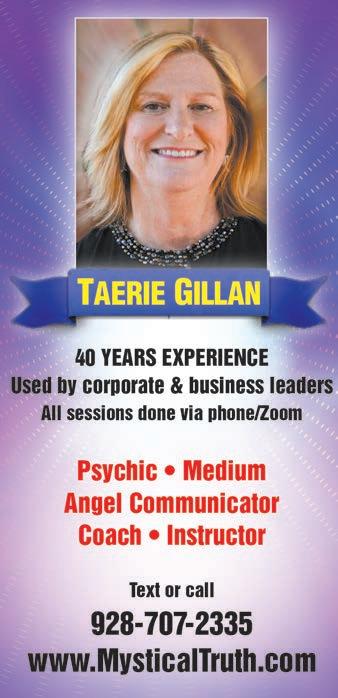

As the windows to the world, our eyes are sensory organs that work overtime. They allow us to take in light, see what is before us and send information for the brain to process. While regular eye exams are important, preventative and proactive maintenance is key to achieving healthy vision.

Dr. Marc Grossman co-founded NaturalEyeCare.com to educate professionals and the public about complementary eye care, which can supplement traditional methods. As both a licensed optometrist and acupuncturist, he believes that the health of the eye depends on the well-being of a person’s entire body. “I treat the person behind the eye, not just the condition. When a patient comes in with glaucoma or a cataract, I look at their history and lifestyle choices to see what could be contributing to it,” he says.
Proper nutrition is crucial for proper eye function. Grossman recommends what he calls a “vision diet” based on the Mediterranean diet, which cuts down on sugar and prioritizes organic,
low-alkaline foods, leafy greens and fresh juices. “Carotenoids, found in red or yellow fruits and vegetables, are vital antioxidants for eye health. They include lutein, the yellow pigment in the macula that protects against certain eye diseases, and zeaxanthin, which helps avoid macular degeneration. These nutrients also absorb harmful blue light and are anti-inflammatory. The presence of free radicals and lack of antioxidants in the eyes is directly related to the incidence of many types of eye disease, including macular degeneration. Consuming antioxidants from food is ideal and can be enhanced with supplements such as CoQ10, omega-3 fatty acids, selenium and curcumin,” Grossman explains.
“Regular aerobic activity combined with meditation or another mindfulness practice is ideal to maintain and even improve vision,” he says. “Thirty minutes of brisk walking or another activity you enjoy four days a week can reduce the risk of cataracts, macular degeneration and other common eye conditions. Qigong, mindful
to optimize critical components in their visual processing and reaction. We work with baseball and basketball players, gymnasts, skiers, even fencers who learn to coordinate and visualize the optimal movement in relation to their environment, equipment and teammates. With repeated exercises and self-correction, athletes learn to enhance visual reaction time, depth perception, visuospatial knowledge and hand-eye coordination."
Monitoring screen time is vital to resting overworked eyes. “As a direct result of excessive screen time, we’re seeing a dramatic increase of nearsightedness in young children, as well as headaches, fatigue, eyestrain and motion sensitivity,” Appelbaum says. “I encourage patients to follow the 20/20/20 rule and take a minimum of a 20-second break every 20 minutes to look at something at least 20 feet away. This allows both the brain and eyes to disengage from the near visual stress and relax. In general, looking at larger screens that are further away will also lessen the strain.”
Taking a holistic approach to overall health and wellness will not only preserve but can also enhance our ability to see. “People should discuss visual issues and symptoms with their doctor and seek out functional vision testing, as vision could be the limiting factor in a number of conditions,” Appelbaum advises. “With mindful visual training and healthy lifestyle choices, we can maximize our vision and our life’s potential.”
of
 Carrie Jackson is a Chicago-based freelance writer and frequent contributor to Natural Awakenings magazine. Connect at Carrie JacksonWrites.com.
Carrie Jackson is a Chicago-based freelance writer and frequent contributor to Natural Awakenings magazine. Connect at Carrie JacksonWrites.com.
Dogs are natural athletes that leap on and off things multiple times a day, usually without incident. That’s why many people don’t realize that, like humans, dogs can sustain injuries, including soft tissue trauma, such as cuts and bruises; back injuries or slipped vertebral discs; sprains; and broken legs.

Most active dogs that frolic outdoors will get the occasional scrape, cut or bruise. These common (usually minor) injuries can be prevented by ensuring that the areas they frequent are safe, contained and hazard-free. Broken legs, on the other hand, are more serious and typically do not result from normal, or even vigorous, high-intensity exercise. Bone fractures are generally caused by a sudden impact or great force to the body, such as being hit by a car or falling a long distance. They are most often seen in older pets and excitable risk-takers. The best way to prevent a dog from breaking a leg is to make sure it is under control at all times, especially outdoors.
Back injuries, slipped discs and sprains, including canine cruciate ligament injuries, often occur in poorly conditioned dogs. For example, if a pup has been indoors most of the winter, its muscles have lost tone and atrophied. This also applies to “weekend warriors” that exercise and play at high intensity with their owners only on Saturdays and Sundays.
Studies show that well-conditioned muscles can begin to lose their tone and strength in a matter of days. This can set the stage for an injury if the activity level suddenly jumps significantly, so start by gradually improving a dog’s fitness level. The minimum amount of exercise needed to maintain muscle tone is 20 minutes three times weekly, and as pets age, this amount increases. Aim for 40 minutes of rigorous walking or running every day. Consistency is essential for a dog’s muscles and ligaments to stay strong and resilient. This will keep the dog fit and better able to avoid strains, sprains and other injuries. Warming up before exercise is very important. Walk and encourage the dog to stretch its limbs before engaging in more intense exercise, especially with aging dogs.
Cervical disc and neck injuries are often the result of collar strain. Dogs should be trained to walk beside their handler and heel on the leash. However, even the most well-trained dog will occasionally jump forward suddenly, causing the collar to pull tightly against their neck.
As dogs leap forward in excitement, they pull all the slack out of the leash and apply a great deal of pressure from the collar to their neck and cervical area, potentially resulting in an injury to the cervical disc or other neck problems. Symptoms can include a hesitance to move or lower the neck to eat or drink, and crying outbursts when the head or neck area are touched. Occasionally there can also be lameness in a front leg with this type of injury. For dogs that habitually pull and whose leash behavior isn’t able to be improved, a harness, Gentle Leader-type head collar or other similar equipment can help distribute the dog’s body weight evenly across the restraint and alleviate the pressure on their neck.
If a dog’s leg muscles aren’t toned, if its tendons and ligaments aren’t stretched and strong, and if its core muscles haven’t been worked and can’t do a good job holding the frame solidly in place, then a sudden burst of activity, even at home, can lead to injuries. Depending on the geographical location, it is much easier to keep a dog fit during spring and summer months, but the goal should be to keep them exercised year-round. If harsh winters discourage outdoor activities, consider visiting an indoor dog park; exposing them to hydrotherapy or a warm-water dog pool; enrolling them in indoor agility, track training or nose work (a growing sport that encourages dogs to follow their natural hunting instincts); or taking them out on a cross-country skiing adventure.
Veterinarian Karen Shaw Becker has spent her career empowering animal guardians to make knowledgeable decisions to extend the life and well-being of their animals.
Dr. Lorraine Maita, the Hormone Harmonizer and Detoxifier, can help you have boundless energy, stable moods, a lean body, sharp, clear mind and balance your hormones so you can feel like yourself again and even better.

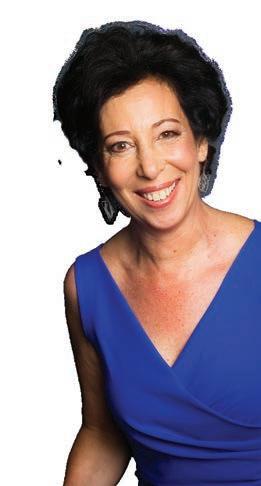
If you need support in getting your life back, apply for a free clarity call to see if we are the right fit at https://you.feelgoodagaincourses.com/ foundations-program.
The Feel Good Again Institute (formerly HowToLiveYounger.com)
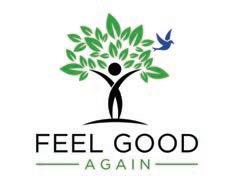
Tried every diet plan? Not losing weight, no matter what you do?
Do you lose weight and gain it back the next year? IT’S NOT YOUR FAULT!
Hormones, Adrenals, and Digestion play havoc with your metabolic system making it impossible to get the weight off.
I have the solution for losing up to 1 pound of fat a day. And, it works! 99% of the women in my Program lose 20 pounds in the first 6 weeks and keep it off!
If you are ready to get your body back, feel good in clothes again and increase your self-esteem, apply for a free call to see if we are a fit.
Ready to take steps to change this? Book a Drop20 in 6TM call with me at: https://marcellepick.com/drop20-in-6

Marcelle Pick, OB GYN, NP
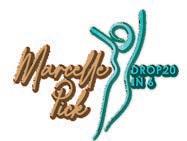
feeling like
Gaining weight, no matter what you do? Tired, have brain fog, moody or “hormonal?”
“I want YOU to Feel Good Again”
 by Sheila Julson
by Sheila Julson
“Vote with your pocketbook,” the saying goes, prompting consumers to buy parkas from planetfriendly Patagonia or socks by Bombas, which donates a pair to homeless shelters for every pair purchased. When choosing stocks and mutual funds, a growing number of investors don’t just want to get a good return on their investment, they also seek to support corporations that spread kindness, protect (or do not pollute) the environment and support women, minorities and LGBTQ+ people.
This year, the National Association of Securities Dealers Automated Quotations (NASDAQ) reported that environmental, social and corporate governance investing “represents more than $8 trillion in assets under management in the U.S. alone, and people expect the worldwide number to surpass $50 trillion by the end of 2025.”

These types of mutual funds can yield returns akin to conventional funds, says Michael Young, director of education and outreach for the U.S. Forum for Sustainable and Responsible Investment (US SIF), a Washington, D.C.-based nonprofit. Some industries, such as oil and gas, may be more eco-challenged than others, but companies can and should make best efforts relevant to their industries, he says, suggesting that investors review a company’s corporate social responsibility report, which provides insight into their environmental and social practices.
Young recommends that new investors start by determining which social and environmental issues matter most to them. From there, tools such as the free US SIF sustainable investing course (ussif.org/courses_individualinvestors) offer an overview of sustainable investing, as well as investment options and strategies. He also encourages a visit to As You Sow (AsYouSow.org/ invest-your-values) to help investors find the companies and mutual funds that align with their social and environmental principles, and to steer clear of those that don’t.
“Most people invest in companies through fund structures via retirement plans or online brokerages,” Young explains. “Through As You Sow, they have search tools that help interested investors determine if they own funds that include
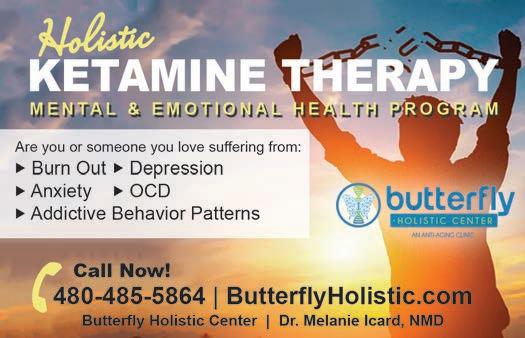
companies in fossil fuels, weapons manufacturing or other industries one might not want to invest in.”
Robin Diedrich, the director of sustainable investing for Edward Jones, asserts that their division arose over the past few years as a result of client demand. The analysts in her division evaluate whether the stated sustainability and financial objectives of a fund are actually being met, using vetting tools like Morningstar (Morningstar.com/ topics/sustainable-investing). “Morningstar has become much more rigid in their methodology. They’re trying to make sure that what’s being labeled as sustainable is truly that,” she says.
Diedrich advises investors to use the same criteria that they would use with any fund, whether traditional or sustainable. “It’s important that you look at a sustainable fund in that same way, because it is an investment with your money,” she says. “Ultimately, it needs to be driven by clients’ personal choices, as well as their financial goals.”
Green Century Funds (GreenCentury.com) is a mutual funds company that engages corporations on behalf of its shareholders to seek specific outcomes. Young says Green Century Funds’ efforts worked with companies like Starbucks, Conagra Foods and Hormel Foods to eliminate deforestation from their supply chains. “There are ways to leverage your dollar to make an impact, because as an individual, you likely couldn’t convince a large corporation to do that,” Young notes.
Ceres, a nonprofit headquartered in Boston, works with investors, companies and capital market influencers to drive action on sustainability issues. It is the co-founder of numerous sustainability enterprises, including Net Zero Asset Managers, a global initiative through which large institutional investors have committed to support net zero greenhouse gas emissions across the economy by 2050 and interim emissions reductions by 2030. Similarly, many pension funds are signatories to the Paris Aligned Asset Owners, meaning that they also support net zero greenhouse gas emissions by 2050.
Because of the sheer volume of their trades, institutional investors and pension fund managers have a great deal of clout and are able to influence corporate leaders to take environmental stewardship seriously. Their commitment to net zero greenhouse gas emissions means that corporations are pressed hard by these investors to eliminate emissions by the stated deadlines.
“As the climate crisis has worsened over the years with extreme weather disasters causing multi-billion-dollar losses, disrupting supply chains and affecting corporate business operations, investors have increasingly recognized climate change as a financial risk. Most institutional investors now analyze climate-related financial risks and opportunities and incorporate those risks and related sustainability risks into their decision making,” says Kirsten Snow Spalding, vice president of the Ceres Investor Network.
 by Julie Peterson
by Julie Peterson
Some dads believe they need to work long hours so that they can purchase better things and go on fancier vacations, but research shows that, outside of escaping poverty, money doesn’t buy happiness. Even for children, it’s not about stuff or destinations; it’s about time spent together. Fortunately, there are men teaching men to embrace the fatherhood role and take action in ways that matter most.
“All men desire to be loved, valued, needed and respected, and to know they are leaving a mark on this world. Many men look for this fulfillment in career and hobbies, but this can be found by embracing their role as fathers,” says Ned Schaut, the Hawaii-based author of The Adventure of Fatherhood. He notes that the way fathers choose to live and perform their parental roles can affect a family for generations.
Learning what fatherhood entails isn’t easy for men that grew up without involved dads, which may leave them doubting that they have what it takes to lead their families. “There are endless resources to help us in our businesses or careers, but our society doesn’t get behind the message that strong families matter, that present, engaged fathers matter,” says Chris Smith, founder of Campfire Effect, a coaching business for entrepreneurs in Arizona. “In business, we apply principles around values, culture, leadership and growth, and then we go home and don’t apply these same principles.”
The lack of fatherhood guidance led Smith to develop Family Brand, an eight-week program designed to strengthen familial bonds and create an intentional family culture. Part of the process involves parents and their kids understanding who they are and defining their values. The family joins together to come up with a series of statements to hang on the wall as a reminder of their identity and purpose.
n We believe you can be who you want to be.
n Smiths can talk about anything without judgment.
n Smiths are kindhearted.
n Smiths are creators.
n Smiths do hard things.
n Smiths are healthy and active.
n Smiths love and support one another. Schaut offers a similar lesson plan called Family Core Values, which prompts families to decide where and how to spend their time and money, and to identify what they do and
do not want. “It helps us make decisions or have conversations about who we are and how we want to treat others,” he says.
A mission statement hangs on the wall at the home of Ben Greenfield, the Washington-based author of Boundless Parenting: Tools, Tactics and Habits of Great Parents. “It’s a collection of the family values, what the family stands for and holds dear, and what the parents want to pass on to their children,” he explains.
These kinds of value statements help promote positive energy in the home. “If the language spoken at home is limiting and negative, those words become energy that create more of that. We need to use language that is about confidence, kindheartedness and teamwork,” says Smith.
According to Schaut, “There will not be an equal balance of time in all categories of life.” Fathers need to understand what matters most to them and then dedicate their time, money and energy in alignment with those priorities.
For Smith, his family comes first, and he makes sure that his business revolves around the home. “We always prioritize family, even if that comes at the price of career,” he says.
Greenfield stacks his priorities in this order: faith first, followed by his relationship with his spouse, family, health and business. His time is meticulously scheduled so that he can dedicate quality time to all of his priorities. He regularly involves his kids in
his spiritual practice and exercise routines to set an example and instill positive habits.
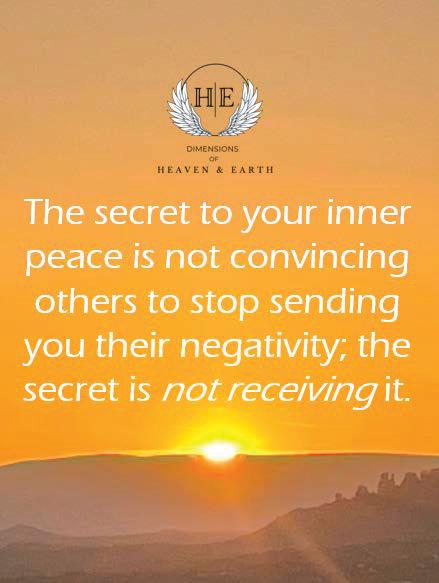
Time dedicated to each child is a priority in strong families. Each of Greenfield’s kids has monthly one-on-one dates with Mom and with Dad, two-on-one quality time every Sunday and daily check-ins every morning and during family dinners. “We’ve noticed that our kids will open up and talk to us during a one-onone,” Smith asserts.
Smith suggests reimagining the way dads approach discipline. “If you tell your kid, ‘What you did was bad,’ it’s hard for them to hear what you say next, because you are attacking them. If we talk about working or not working, you can say, ‘That really doesn’t work and here’s why.’ Kids are then more open to hearing and learning,” he explains.
Discipline needs to be thoughtfully appropriate for each child and each situation. “You have to know and be in tune with your kid,” says Schaut. “When you discipline them, it must come from love and you responding as a dad to the situation, not reacting.”
But talking will never overcome modeling. “What they see you doing is more important than the advice you give them,” says Greenfield. “At the end of the day, kids just want to be seen and loved and heard.”
Julie Peterson writes on health, wellness and environmental topics. Reach out at JuliePeterson2222@gmail.com.
Connecting you to the leaders in natural health care and green living in our community. To find out how you can be included in the Business Directory, email PhoenixAds@NaturalAZ.com or visit NaturalAZ.com and download our media kit.

480-676-0510
Info@AllergyClearingTechnique.com
AllergyClearingTechnique.com
Learn a process to potentially clear food allergy response. Home study course with training manual and training videos. Not NAET. No shots, No drops, No bloodwork—No kidding. See ad, page 17.
LEADING EDGE WELLNESS

MacKenzie Kalt, Owner/Director


4050 E Greenway Rd, Ste 5, Phoenix 480-594-5052 • NatPainTreat.com
Providing some of the most advanced natural technologies for those struggling with chronic pain, injuries, stress, migraine headaches, PTSD, insomnia, Lyme disease, autoimmune disorders, skin conditions, and much more. Visit our website to learn more. See ad, inside front cover.
NATURAL MEDICINE & DETOX
2701 N 7th St, Phoenix 602-307-0888

NaturalMedicineDetox.com
We offer a wide range of services that can help just about everyone at affordable prices. We also accept insurance for acupuncture, including Medicare. Please take a look at our website to learn about our services, gifted practitioners, and insurance information and form to see if your plan covers acupuncture. See ad, page 33.
PIHMA COLLEGE & CLINIC
Acupuncture, Herbal Medicine and Homeopathic Clinic

301 E Bethany Home Rd, Ste A-100, Phoenix 602-274-1885 • pihma.edu
PIHMA offers Acupuncture
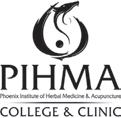
Treatments, Herbal Consultations, Acute and Constitutional Homeopathic Consultations, as well as Auricular Acupuncture, Cupping, Moxibustion, Gua Sha and Tui Na. Our medicines have been used for thousands of years to treat numerous conditions, including pain, stress and more. PIHMA is a teaching clinic and offers affordable pricing.
SW HERB SHOP & GATHERING PLACE
148 N Center St, Mesa 480-694-9931 • SWHerb.com Store.SWHerb.com
Kathy Gould and Madalyn Johnson, herbalists and proprietors, offer medicinal bulk herbs and specialty tea blends, herbal extracts, certification classes, community and therapist rental space, medicine-making supplies, and more. See ad, page 17.

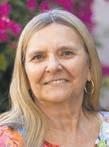
WATERCOLOR ART CLASSES
Allura Westly
3611 E Sunnyside Dr, Phoenix AlluraWatercolor@cox.net 602-469-0524 • AlluraWaterColor.com
Allura Westly, master teacher, opens her sanctuary studio to all levels, beginner to advanced. Learn fluid color technique, drawing and composition. Small class of eight students. No talent required, just a desire to create.
MILLENNIUM DENTAL ASSOCIATES
5705 N Scottsdale Rd, Ste D-110, Scottsdale 480-948-0560 MillDental.com
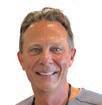
Millennium Dental offers more than 50 years’ experience in holistic dentistry, including advanced general dentistry
Certified by the IABDM. See ad, page 9.
Dr. Michael Margolis and Dr. Stephen Kovar
2045 S Vineyard Rd, Ste 153, Mesa 480-833-2232 • MyDentistAZ.com

A holistic and biological approach to your dental needs and overall health. Bio-compatible dentistry, esthetic dentistry lumineers/veneers, family dentistry and much more. See ad, page 3.

NATURAL DENTAL PARTNERS
3134 W Carefree Hwy, Ste 9, Phoenix 602-775-5120 • MyNaturalDentist.com
The doctors at Natural Dental Partners take the time to listen to your concerns and use their extensive experience to help you achieve better health. Using the latest technology (such as lowdose 3D imaging, CEREC, lasers, PRF, ozone and treatment of sleep disorders), they believe in a team approach to help you achieve your healthcare goals. Check out MyNaturalDentist. com or ABreathOfHealth.com to see how they can help you. See ad, pages 5 and 29.
Melanie Icard, NMD
1430 E Missouri Ave, Ste B127, Phoenix 602-353-7712 • ButterflyHolistic.com

Dr. Icard specializes in biological medicine, peptides, PRP, aesthetics and ozone therapy. Her offerings include holistic antiaging medicine, pain reversal, natural and traditional aesthetics, ozone therapy, holistic ketamine therapy, and sexual health regeneration. See ad, pages 27 and 33.

BLU DRAGON
Pat Duryea, PhD
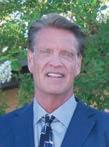
6102 N 16th St, Ste 19, Phoenix 480-665-9781
PhxBluDragon.com
The Blu Room is patented technology, bringing ancient and future technologies of sound, light and sacred geometry together in the NOW. Clients relax on a therapeutic bed bathed in light and sound vibrations for 20 minutes. Clients report less stress, better sleep, better focus, and better health. Mention Natural Awakenings and receive a 25% discount. See ad, page 15.
KIM CARTER, MA, HTCP
15215 S 48th St, Ste 154, Phoenix

Kim@IntuitiveKim.com
IntuitiveKim.com
Kim is an Intuitive and Healing Touch Certified Practitioner offering guidance when you feel out of alignment with your authentic self. Stress, fear, anxiety and grief/loss throw us off balance, making it challenging to access inner wisdom. Sessions include reading and clearing your energy field; and simple, practical self-healing tools to keep you balanced and grounded. See ad, page 19.
Taerie Gillan
928-707-2335
MysticalTruth.com
Psychic, medium, coaching and intuitive business advisory services. For 40 years, Taerie has helped people from all walks of life and around the world. As an Angel communicator, she works with the higher realms, offering empowerment, healing and peace from her sessions without compromising religious or spiritual beliefs. See ad, page 27.
IMAGINE HYPNOTHERAPY
Carmen Moretti, CMS-CHt, FIBH
8900 E Pinnacle Peak, Ste 200, Scottsdale 602-380-3631
Over the past 13 years, Carmen Moretti has helped people access that power within themselves to break free and heal from patterns of sadness, stress and overwhelm and live a life that they are proud of and that they love. See ad, page 11.
NUTRITION REVIVED
Ute Haahr, Integrative Nutrition Coach
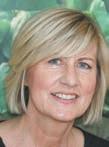
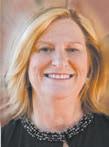
480-206-0752
Ute@NutritionRevived.com

NutritionRevived.com
I help women with metabolic health issues balance their hormones, lose weight and reclaim their inner power. I specialize in helping women with involuntary childlessness through my integrative nutrition and mindset program. See ad, page 24.
ARIZONA ORGANIC PEST & TERMITE CONTROL

Organic Pest Control 602-923-1457 • ArizonaOrganic.com
Avoid being exposed to dangerous chemicals when all-natural and safer alternatives work just as well and last longer. See ad, page 31.
ANDREA BRIGGS, AKA “CRITTER DOC”
ASAM, Sh. Reiki, HTAP Communicator, Healer, Counselor 602-317-1543 • CritterDoc1@cox.net SpiritAnimalWisdom.com
With a gentle healing touch, Andrea provides wellness counseling, energy healing, animal communication, and intuitive counsel for pets and their people.



SOUTHWEST INSTITUTE OF HEALING ARTS

1538 E Southern Ave, Tempe 480-994-9244 Info@swiha.edu • swiha.edu
Nationally accredited college offers holistic health and wellness degrees, diplomas, certificates of excellence, continuing education and personal development, oncampus and online. Financial aid available. See ad, outside back cover.
DIMENSIONS OF HEAVEN AND EARTH

11108 N Frank Lloyd Wright Blvd, Ste E16, Scottsdale 732-832-1036
DimensionsOfHeavenAndEarth.com
Dimensions of Heaven and Earth is Scottsdale’s exciting, new one-stop Spiritual Experience: a center of healing and insight combined with a store full of unique gifts from local artisans. With training and tools for your personal development, we are excited to help you take your spiritual journey to new levels! See ad, page 35.

The Path of Spiritual Freedom
1-877-300-4949 • EckankarArizona.org
Eckankar.org • HearHU.org
Facebook.com/EckankarArizona
Eckankar is an active, individual, creative spiritual practice. A companion and roadmap for your journey home—to the heights of SelfDiscovery and God-Discovery, and beyond. Come along and discover the most secret part of yourself. The key to spiritual freedom lies within you. Explore life as a Soul Adventure. See ad, page 19.
4105 N 20th St, Ste 115, Phoenix
480-442-5020
SummitLighthousePhoenix@gmail.com

SummitLighthousePhoenix.org
Dedicated to sharing Saint Germain’s Violet Flame. All faiths welcome. Learn how you can become a modern day mystic. We are dedicated to sharing the Teachings of the Ascended Masters® to help you bring in joy and peace to the world. Learn what the requirements are to make your ascension. See ad, page 24.
Visit NaturalAZ.com
Exclusive resources, online editorial and more.

Struggling to find happiness or the courage to chase your dreams? Feeling stuck or like there has to be more to life? Spirit and I can help guide you to a reality you love and a fulfillment your soul has been longing for.
Kenzie: 630-917-4404
IntuitiveHealingByKenzie.com
Roadrunner Park Farmers Market 3502 E Cactus Rd, Phoenix
Saturdays Oct-May 8am-1pm | Jun-Sep 7am-11am
Facebook.com/RoadrunnerParkFarmersMarket
Singh Meadows Farmers Market 1490 E Weber Dr
Fridays, Saturdays & Sundays 8am-2pm
Facebook.com/SinghFarms
Sun City Farmers Market 16820 N 99th Ave
Thursdays Oct-May 9am-1pm
Facebook.com/Sun-City-Farmers-Market631299790224049



The Capitol Farmers Market 1700 Adams St, Phoenix
Thursdays 10:30am-1:30pm
ArizonaCommunityFarmersMarkets.com
Uptown Farmers Market 5757 N Central Ave, Phoenix
Wednesdays Oct-Apr 9am-1pm & May-Jun
NOTE: Please check market websites and ArizonaCommunityFarmersMarkets.com for more information on days and hours, and any restrictions.



Ahwatukee Farmers Market
4700 E Warner Rd, Phoenix
Sundays Oct-May 9am-1pm
Jun-Sep 8am-11am
Facebook.com/AhwatukeeFarmersMarket
Care 1st Farmers Market
328 W Western Ave, Avondale
Tuesdays Jul-Oct 8am-noon
ArizonaCommunityFarmersMarkets.com
Carefree Farmers Market
1 Sundial Circle
Fridays Oct-May 9am-1pm
Jun-Sep 8am-11am
Facebook.com/CarefreeFarmersMarket
Downtown Chandler Farmers Market
3 S Arizona Ave
Saturdays Oct-May 9am-1pm
Jun-Sep 7am-10:30am
Facebook.com/ChandlerFarmersMarket
Downtown Mesa Farmers Market
1 E Main St
Saturdays 8am-noon
dtMesaFarmersMarket.com
Downtown Phoenix Farmers Market 721 N Central Ave
Saturdays Oct-Apr 8am-1pm
May-Sep 7am-11am
DowntownPhoenixFarmersMarket.org
Gilbert Farmers Market
222 N Ash St
Saturdays Oct-Mar/Apr 8am-noon Apr/May-Sep 7am-11am GilbertMarket.com
High Street Farmers Market 5415 E High St, Phoenix
Sundays Oct-May 10am-1pm
Facebook.com/Farmers-Market-on-HighStreet-2244771575799425
Mommas Organic Market
Arrowhead Farmers Market
7780 W Arrowhead Towne Center, Glendale
Saturdays Oct-May 9am-1pm | Jun-Sep 8-11am Facebook.com/Getlocalazfarmersmarkets GetLocalArizonaEvents.com
Mommas Organic Market
Glendale Farmers Market at Cabela’s 9380 W Glendale Ave, Glendale, AZ 85305
Sundays Sep-May 10am-2pm | closed for summer
Facebook.com/Getlocalazfarmersmarkets
GetLocalArizonaEvents.com
Old Town Scottsdale Farmers Market
3806 N Brown Ave
Saturdays 8am-1pm
ArizonaCommunityFarmersMarkets.com
Power Road Farmers Market 4011 S Power Rd, Mesa
Monday-Saturday 9am-5pm | Sunday 9am-4pm PowerrdFarmersMarket.com
8am-noon
Saturdays Nov-Apr 9am-1pm & May-Oct 8am-noon
UptownMarketAZ.com
Verrado Community Farmers Market N Market Pl & W Main St, Buckeye
Sundays Oct-Jun 9am-1pm
Facebook.com/VerradoCommunityFarmersMarket
Flagstaff Community Farmers Market 211 W Aspen Ave, City Hall Parking Lot
Sundays May-Oct 8am-noon
FlagstaffMarket.com
Prescott Farmers Market
Dignity Health, YRMC
900 Iron Springs Rd, Miller Valley Lot
Saturdays 7:30am-noon
PrescottFarmersMarket.org
Sedona Summer Community Farmers Market
Tlaquepaque/Creekside, 336 Hwy 179
Fridays May-Oct 8-11:30am
Sedona-Farmers-Market.com
Sedona Winter Community Farmers Market
Wells Fargo Bank Parking Lot 2201 W State Rte 89A, West Sedona
Sundays Oct-May noon-4pm
Sedona-Farmers-Market.com




